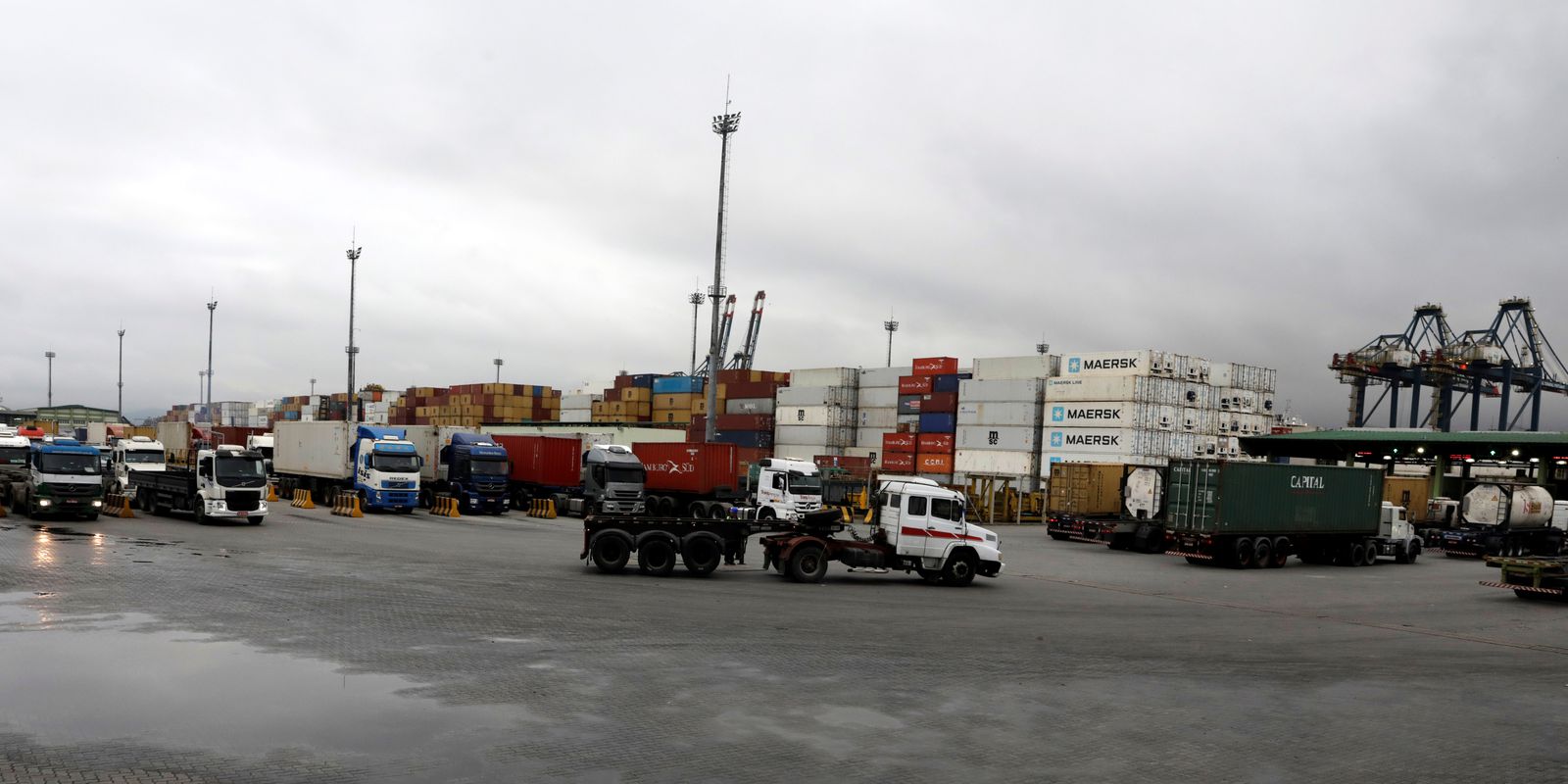Benefiting from the increase in oil, corn and soy exports, the trade balance registered the highest surplus in history for the month of March. Last month, the country exported US$ 10.956 billion more than it imported, up 37.7% compared to March 2022. This was the best result since the beginning of the historical series, in 1989.
In the first three months of the year, the trade balance accumulates a surplus of US$ 16.068 billion. This represents 29.8% more than that recorded in the same months last year based on the daily average. The accumulated balance is also the highest for the period since the beginning of the historical series. The data were disclosed this Monday (3) by the Foreign Trade Secretariat (Secex) of the Ministry of Development, Industry and Foreign Trade.
Last month, Brazil sold US$ 33.06 billion abroad and bought US$ 22.104 billion. Exports rose 7.5% compared to March 2022, based on the daily average, setting a record for the month. Imports fell 3.1% based on the daily average, but due to the greater number of working days in March this year, they reached the highest value in history.
In the case of exports, the increase is due more to the increase in traded volume than to the international prices of goods. Last month, the volume of exported goods rose by an average of 18.5% compared to March last year, while average prices dropped by 5.6%.
In imports, the quantity purchased fell by 3.7%, reflecting the slowdown in the economy, but average prices increased by 2.4%. The rise in prices was driven mainly by non-electric motors and machines and by chemical compounds, items that became more expensive after the start of the war between Russia and Ukraine. The prices of chemical fertilizers, which rose sharply last year, fell 24.4% in the comparison between March 2023 and 2022.
Sectors
In the agricultural sector, the recovery of shipments, which had been delayed in February, weighed more on the increase in exports, despite the appreciation of commodities (primary goods with international quotation). The average price advanced 3.6% in March compared to the same month of 2022, while the volume of goods shipped rose 9.8%. In the manufacturing industry, the quantity exported increased by 4.3%, with the average price increasing by 1%.
In the extractive industry, which encompasses the export of ores and oil, the quantity exported rose 57.8%, but average prices dropped 20.5% in relation to March last year.
Crude oil once again drove the rise in exports, with the volume exported rising 102.7%, despite the 24.1% drop in prices between March 2022 and March 2023. This was due to the resumption of Petrobras platforms that were under maintenance. After a year of continuous highs, oil prices are falling because the effects of the war in Ukraine and the economic recovery after the most acute phase of the covid-19 pandemic have already been incorporated into quotations.
In the comparison between February last year and this year, the products with the greatest prominence in the increase in agricultural exports were rice in the husk (+457.4%), unground corn, except sweet corn (+6,138.9%) and soybeans ( +8.9%). The growth offset the fall in other products, such as coffee (-30.2%) and raw cotton (-62.7%).
In the extractive industry, the biggest increases were registered in exports of crude petroleum oils or bituminous minerals, crude (+53.8%) and other crude minerals (+131.7%), offsetting the drop in iron ore exports (-19.7%). In the manufacturing industry, the biggest increases occurred in poultry meat (+23.1%), sugar and molasses (+39.8%) and soy bran and other animal feed (+37.3%).
As for imports, the biggest drops were registered in the following products: unground corn (-84.8%) and soybeans (-77.1%) in agriculture and livestock; crude oil (-12.6%) and natural gas (-80.2%), in the extractive industry; and insecticides and pesticides (-39.3%) and thermionic valves and tubes (-28.5%), in the manufacturing industry.
I estimated
The economic team released the first trade surplus estimate for 2023. The government projects a positive balance of US$ 84 billion for this year, which would represent an increase of 36.8% in relation to the record surplus of US$ 62.3 billion registered in 2022.
Official estimates are updated every three months. Forecasts are more optimistic than those of the financial market. the bulletin Focusa survey of market analysts released every week by the Central Bank, projects a surplus of US$ 55 billion this year.
















